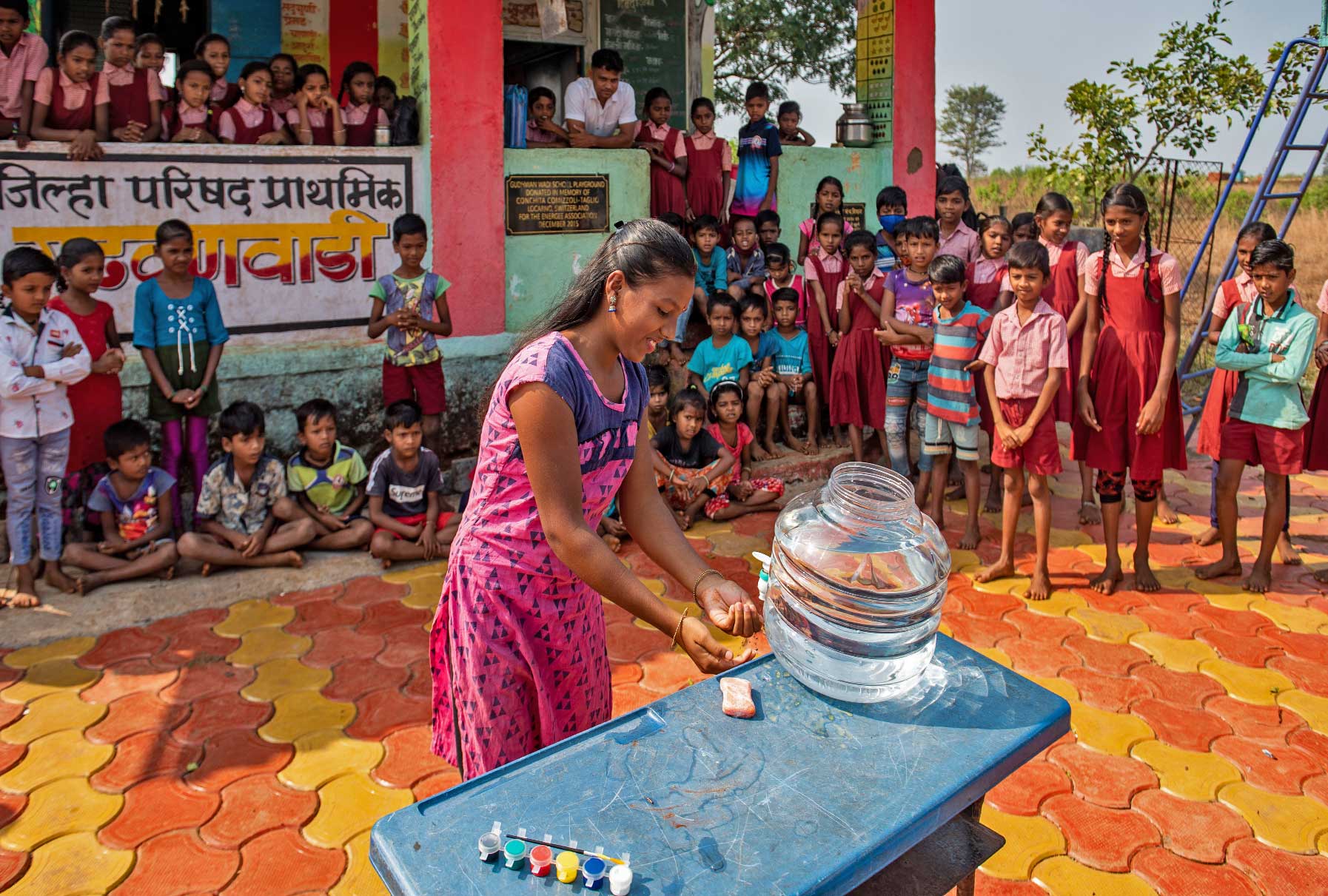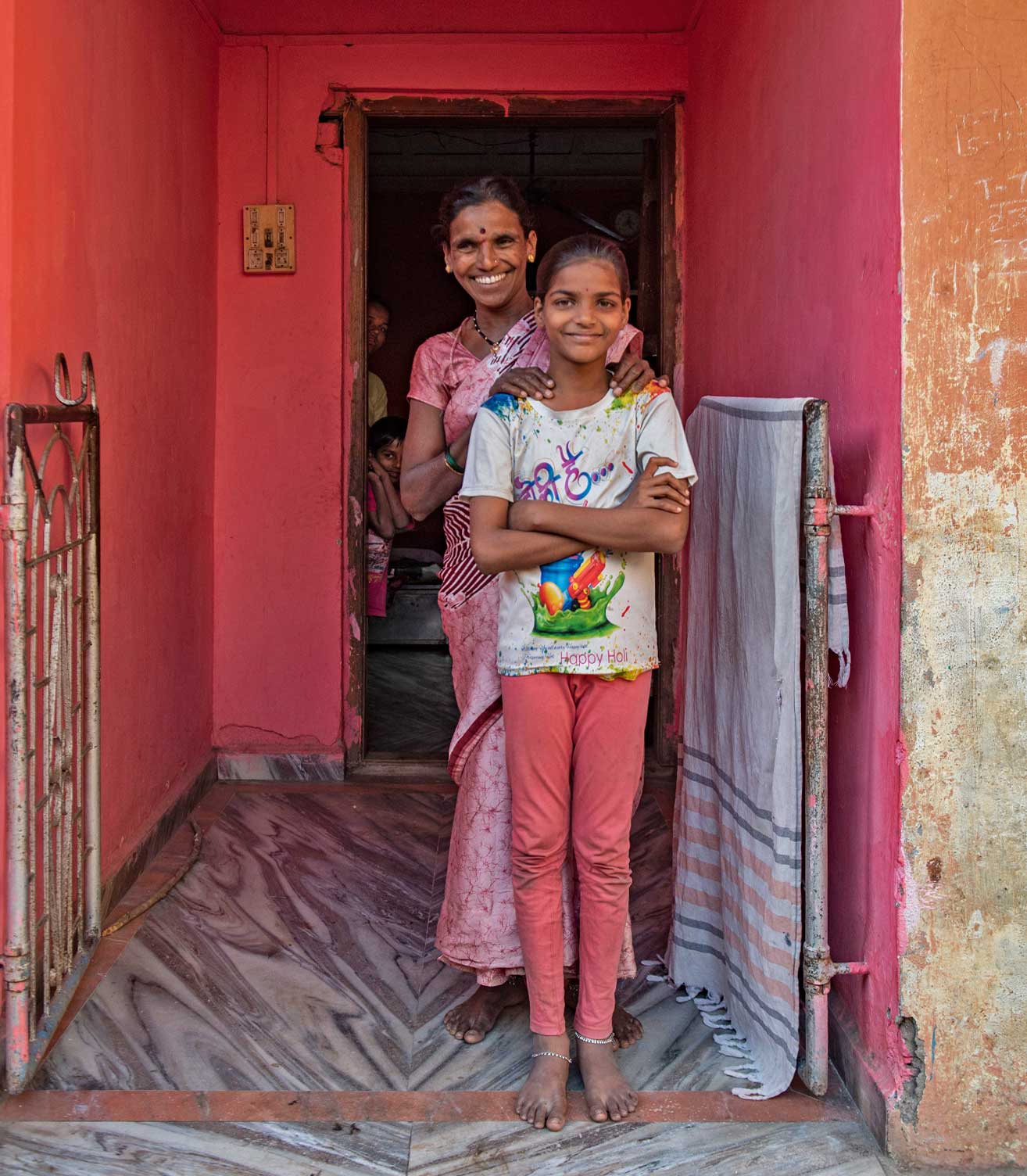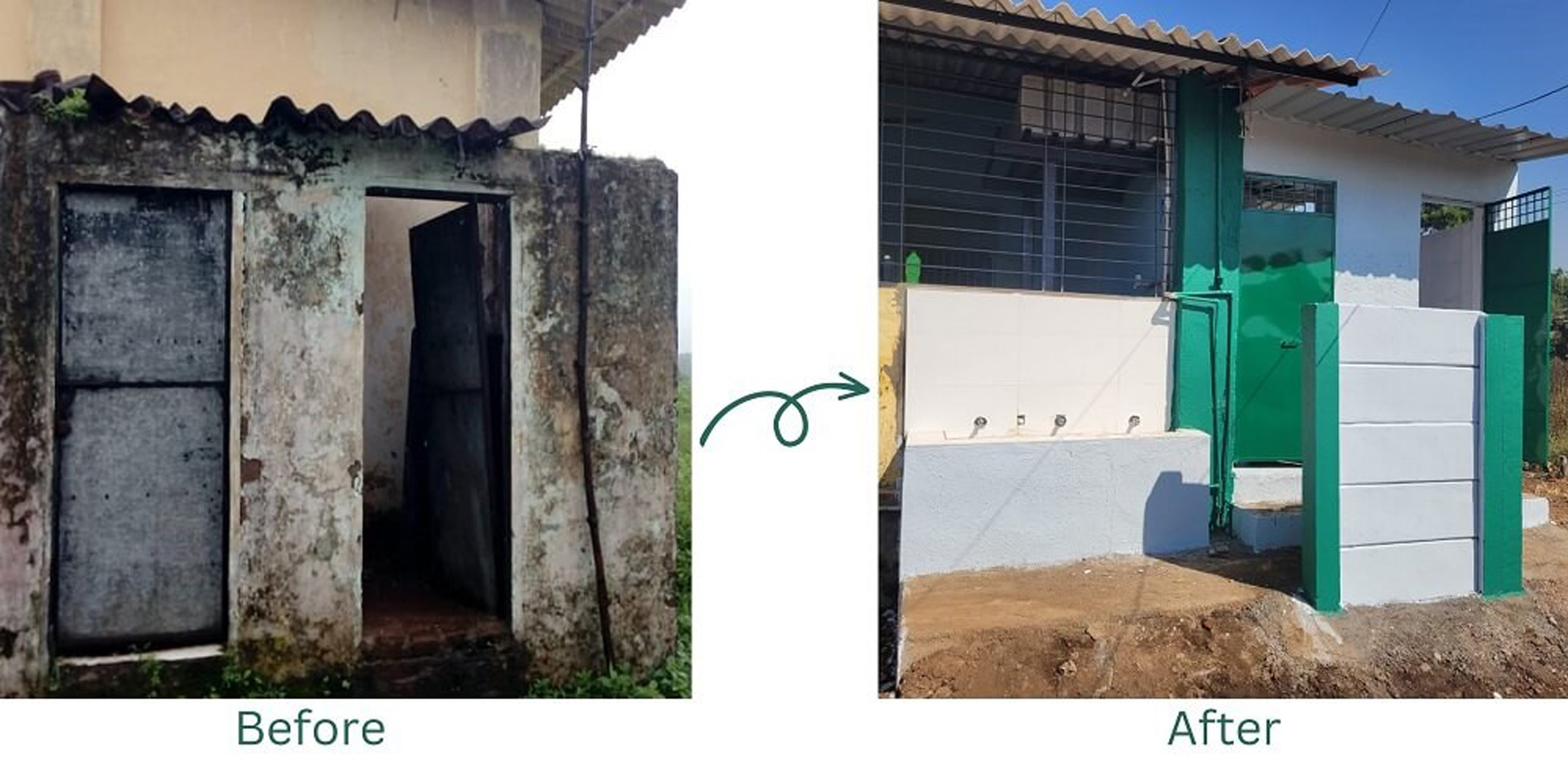We carried out a school sanitation survey in Karjat and found that 38 out of 83 upper primary government schools urgently need proper toilets and hygiene education programs.
SAPHL
- Home
- SAPHL

Growing up in a clean and safe environment is every child’s right.
UNICEF emphasises that water, sanitation, and hygiene (WASH) are crucial for children's well-being, stating that access to clean water, basic toilets, and good hygiene practices are essential for their healthy development and survival.
The Problem
We are on a mission to make access to sanitation a priority, especially for adolescent girls. Here's why.
01.
Access
28% of Maharashtra rural Government schools do not have safe and clean access to toilet facilities for girls.
02.
Gender Lens
An alarming 66% of schools do not have separate toilets for girls, exacerbating gender disparities in education.
03.
School dropouts
The absence of suitable facilities during menstruation forces many girls to miss school days, including important tests and exams, ultimately leading to higher dropout rates and widening the gender inequality gap.
04.
Dignity & security
Girls resorting to open defecation face a higher risk of assault and harassment from strangers, compromising their dignity and sense of security.
05.
Health
Inadequate sanitation facilities put girls at a greater risk of urinary tract infections and kidney stones, negatively impacting their overall health and well-being.

Our Mission
We’re stepping in to build and repair school toilets across Karjat Taluka in Raigad District, focusing on schools that need it the most.
We partner with trusted contractors to deliver quality work on time. Our strong connections with local government bodies and a dedicated team help us execute projects smoothly.
This initiative will provide adolescents with access to clean and safe sanitation. Secure toilet spaces, especially for girls, play a key role in reducing dropouts and helping them stay in school.

With over 6 years of experience, we've built 2,500+ rural toilets and upgraded 35+ school toilet blocks.
This work has positively impacted 12,500+ individuals, including 5,000+ adolescents so far.
Designed to endure
There are 4 stages of Construction and Behaviour Change Communication:
01.
Government Tie-ups
Establishing a Memorandum of Understanding (MoU) with the government, implementing monitoring mechanisms and ensuring accountability.
02.
Awareness Creation
Launch a powerful advocacy campaign to foster behavioral change and educate all beneficiaries about the significance of using toilets.
03.
School Toilet Construction
Utilizing high-quality materials for construction to ensure long-term sustainability, while partnering with reliable contractors to guarantee the quality of the construction process.
04.
Sustainability Activities
Implementing a year-long behavioral change communication program involving students, teachers, and parents, facilitating the formation and functioning of a Parent-Teacher Committee, and installation of Information, Education, and Communication materials for support and engagement.
Take a quiz!
- {{i+1}}
{{quiz[currentQuestion].q}}
Uh-oh!
You can do better.That was good.
You can do better.Congrats!
You got the perfect score.Through SAPHL, empowHER India provides improved sanitation practices at schools.
How we bring SAPHL to life


